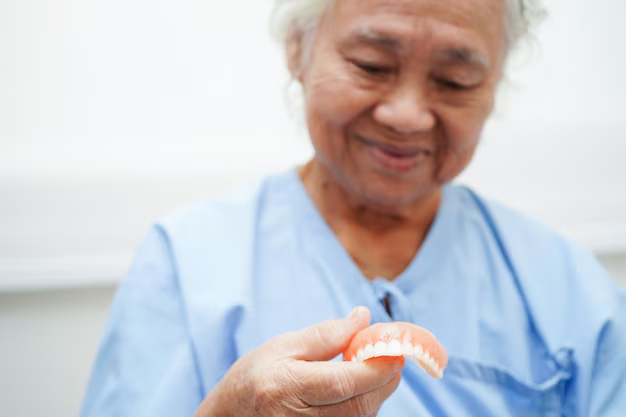Your Guide to Do I Have Dental Coverage With Medicare
What You Get:
Free Guide
Free, helpful information about Medicare Insurance and related Do I Have Dental Coverage With Medicare topics.
Helpful Information
Get clear and easy-to-understand details about Do I Have Dental Coverage With Medicare topics and resources.
Personalized Offers
Answer a few optional questions to receive offers or information related to Medicare Insurance. The survey is optional and not required to access your free guide.
Is Dental Coverage Included with Medicare? Here’s What You Need to Know
When navigating the complexities of Medicare, it's important to understand how much coverage you have, especially when it comes to dental care. Medicare, the federal health insurance program primarily for people aged 65 and older, offers a wide variety of healthcare services, but when it comes to dental, it's a different story. Many recipients find themselves asking: Does Medicare cover dental care?
Understanding Medicare's Dental Coverage
To cut to the chase: Medicare does not usually cover routine dental care. This includes services like cleanings, fillings, dentures, and tooth extractions. Medicare Part A (Hospital Insurance) and Part B (Medical Insurance) focus more on hospital care and medical needs, respectively, rather than dental services.
However, there are exceptions. Medicare might cover dental services if they are part of an emergency procedure or necessary for another medical procedure. For example, if you’re undergoing jaw surgery, Medicare might cover the dental exams required as part of the preparation.
Alternatives for Dental Coverage
Despite the lack of direct coverage, several options exist for seniors looking to bridge the gap in their healthcare.
Medicare Advantage Plans
Many people choose Medicare Advantage Plans, also known as Part C, which often include dental coverage. These plans are offered by private insurance companies approved by Medicare and can include added benefits like vision, hearing, and dental. However, it's essential to review the details, as coverage may vary widely from one plan to another.
Dental Insurance Plans
Beyond Medicare Advantage, standalone dental insurance plans are a good option. These plans typically cover a range of services from preventive care to more extensive procedures. Companies offering these plans often provide various levels of coverage that can be customized to meet your dental care needs and budget.
Discount Dental Plans
Another alternative is discount dental plans. These are not insurance but offer reduced costs at participating dental offices for an annual fee. These plans typically offer savings of 10% to 60% on a variety of dental procedures.
Exploring More Financial Assistance Options
Aside from purchasing additional insurance, individuals might also want to explore other avenues for assistance.
Medicaid and State Programs
For those who qualify, Medicaid may offer dental coverage. The extent of the coverage varies by state. Additionally, many states have programs specifically aimed at providing dental care for low-income seniors.
Community Health Clinics
Local community health clinics often offer low-cost or sliding-scale fee structures for dental care. These clinics are great resources to consider for basic dental needs.
Financial Assistance Programs
If paying for dental care becomes overwhelming, look into financial assistance programs or setup a payment plan with your dentist. Programs designed to ease the financial burden for those on a fixed income or experiencing hardship can sometimes cover all or a portion of dental expenses.
In summary, while Medicare’s coverage of dental services is limited, a variety of solutions exist to access affordable dental care. Whether through private insurance, state assistance programs, or community resources, seniors have multiple channels to ensure their dental health is not neglected.
Financial Assistance Options at a Glance
Here’s a handy list of options to explore:
- 🏥 Medicare Advantage Plans: Many include dental coverage.
- 🦷 Stand-alone Dental Insurance: Customized coverage options.
- 💸 Discount Dental Plans: Offers significant savings across services.
- 🌐 Medicaid: State-specific dental benefits may be available.
- 🤝 Community Health Clinics: Affordable or sliding fee scale options.
- 💼 Financial Assistance Programs: Tailored support for those in need.
By keeping these resources in mind, you'll be better prepared to tackle the complexities of managing dental care under Medicare, ensuring that your smile remains as healthy as the rest of you.
What You Get:
Free Medicare Insurance Guide
Free, helpful information about Do I Have Dental Coverage With Medicare and related resources.

Helpful Information
Get clear, easy-to-understand details about Do I Have Dental Coverage With Medicare topics.

Optional Personalized Offers
Answer a few optional questions to see offers or information related to Medicare Insurance. Participation is not required to get your free guide.


Discover More
- Am I Elgible For Medicare
- Am I Enrolled In Medicare
- Am I Qualified For Medicare
- Are Adult Diapers Covered By Medicare
- Are Chemotherapy Drugs Covered By Medicare Part d
- Are Colonoscopies Covered By Medicare
- Are Covid Tests Covered By Medicare
- Are Cpap Machines Covered By Medicare
- Are Cpap Supplies Covered By Medicare
- Are Dental Implants Covered By Medicare
